Pop Geopolitics, Contracting and Health - Open Gov #08
Vaccines, pop culture and decision making. December 2021.
Available in:
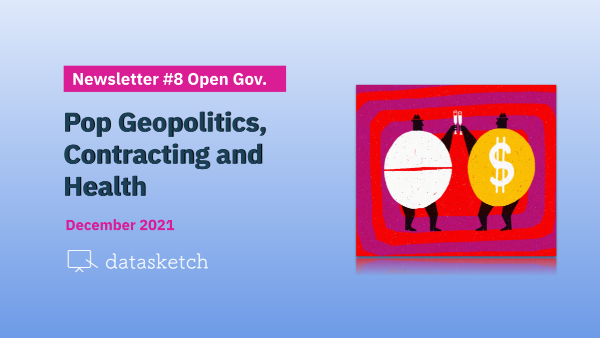
We are Laura Tamia Ortiz, Gabriel Jiménez, María Juliana Rodríguez and Juan Pablo Marín Díaz, part of the Datasketch Open Government team. If you want to read previous issues, you can do so at Open Government Newsletter.
Have you reached us through social networks, or have you been forwarded this newsletter and want to receive it in your email twice a month? Subscribe!
#OGP-SUMMIT
The gender and open government agenda
As a prelude to the Open Government Summit, a 90-minute session organized by OGP and the International Development Research Centre (IDRC) will take place on December 13, 2021.
They will:
- Share updates on what has been learned and entry points in the coming year.
- Highlight new commitments and approaches to increase gender equality in open government.
- Launch working groups focused on critical thematic entry points for OGP partners and governments in the coming year.
The event is public, with limited space due to the interactive nature of the format. The session will be interpreted in English, French, and Spanish.
It will be held between 8:00 - 9:30 AM EST or 14:00 - 15:30 CET.
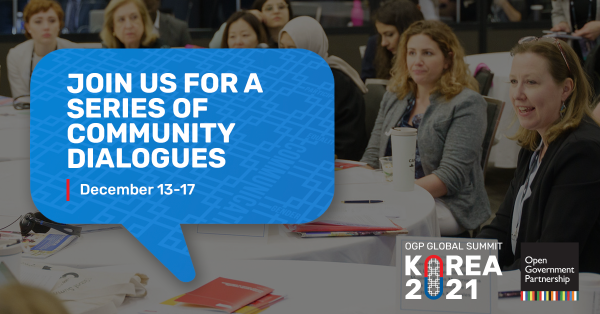
(Community Dialogues - Vía OGP GLOBAL SUMMIT 2021)
#CULTURE AND FIGHT
Music and hope
Transparency International published a musical list on the various social struggles of the population of each of the countries found in the Corruption Perceptions Index 2020. The index ranks countries depending on citizen perception of corruption in the public sector. While the index is an essential tool that promotes discussions around corruption, the musical playlist is an exciting proposal for creating more accessible spaces for dialogue. The artistic manifestations show the frustrations and desires for change of the people who inhabit these countries.
You can find the playlist on Spotify and learn its creation process in Fair Play.
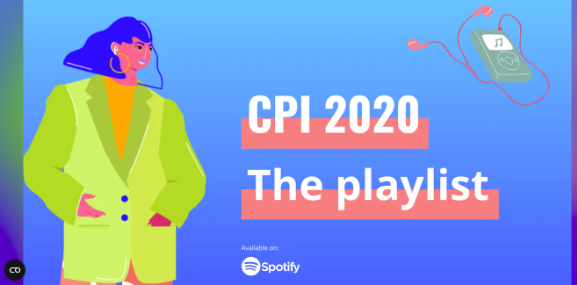
(CIP Playlist- Vía Transparency International at Spotify)
GLOBAL NEWS
BBC News is one of the divisions of the BBC responsible for collecting and disseminating information in the media worldwide. The week’s most important news is discussed in depth in the Global News.
On this occasion, the episode titled “Speed up Covid vaccinations, WHO says”, reflects the WHO director’s calls to governments to stop the advance of the Omicron variant. Boris Johnson has responded to this call with new restrictions to combat Covid-19 in the United Kingdom.

#INVESTIGATION
Salud, dinero y corrupción
PODER Latam and the NGO Nosotrxs led this research, which involved journalists, health policy specialists and more than 60 patient organizations in the “Cero Desabasto” initiative. They analyze the Mexican Institute of Social Security (IMSS) drug purchases, the most significant health agency in Latin America.
After months of collecting, cleaning and completing unreported data, they evidenced (among other things) a figure of more than 900 million dollars paid in overpricing by the IMSS between 2008 and 2018.
If you want to learn more about this research, we invite you to read this review by Open Contracting Partnership (OCP) and visit the platform.

(Illustration Dinero, Salud y Corrupción: Dani Scharf via quienesquien.wiki)
No one thinks about childhood
In this special report, Red Palta shows violations of children’s rights in patients with cancer or HIV caused by poor public contracting and excessive rigor in the protocols during the pandemic.
They identify barriers to access to health services: lower diagnosis of diseases, abandonment of treatments due to lack of resources, lack of information, lack of follow-up, shortage of medicines, reduction in public investment for these diseases, lack of personnel, and mistreatment.
The project features a review of Chile, Colombia, Mexico, Guatemala, and Uruguay.
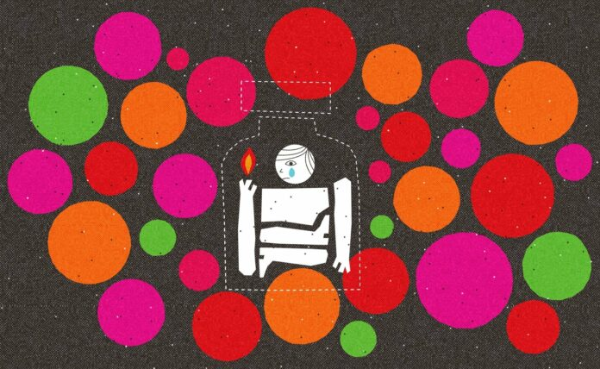
(Illustration: Dani Scharf via: La Diaria)
#PUBLIC-PROCUREMENT
Red flags in Costa Rica
This country has just launched the Todos los Contratos CR platform, which analyzes and evaluates the procurement data stored in the Integrated Public Procurement System (SICOP). Its objective is to promote oversight, prevent corruption and improve administrative contracting processes.
With this technology, it is possible to identify bad practices in the opening of procurement data, provide a history of the behavior of SICOP contracts and generate a system of flags that allow identifying the transparency, timeliness, traceability, competitiveness, and reliability of public institutions.
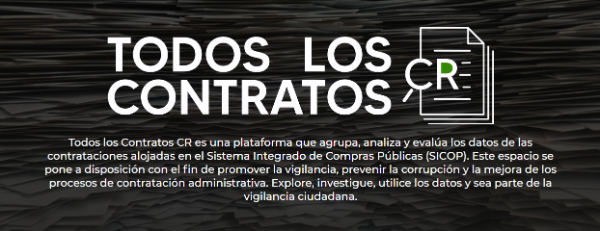
(Via PODER and Innovaap-UCR platform)
Fraud Detection
Finding evidence of corruption in procurement can be like looking for a needle in a haystack. However, globally, risk actors and factors are being identified and remedial action generated thanks to new data tools.
OCP recounts the anti-corruption case of Datanomix, an organization specializing in business analytics tools for large companies in Kazakhstan. “So far, by their estimates, they have been able to save the Kazakh government millions and provide documentation for hundreds of criminal cases,” they explain.
In neighboring Uzbekistan, Datasketch and Open Data Charter conducted a consultancy on open data for anti-corruption. We relied on this guide (es) to determine the existence and status of the 30 datasets that the nation should have to fight corruption, which is essential for public service oversight and investigation.
These two examples show the relevance of this issue in Central Asia, where actions are being taken to strengthen citizen participation in formulating public policies.
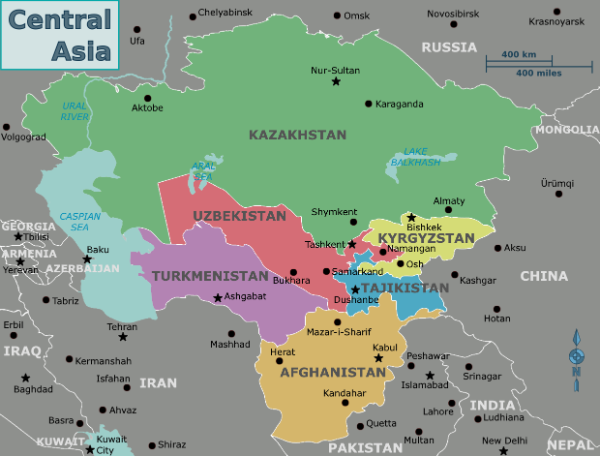
(Central Asia Map - Via Wikipedia)
If you want to learn more about this topic, we invite you to download the “Guide for identifying corruption risks in public procurement, using data science” by Datasketch. It is part of the project “Preventing corruption through transparency and data analytics in public procurement systems” of OAS-IGR and the Development Bank of Latin America.
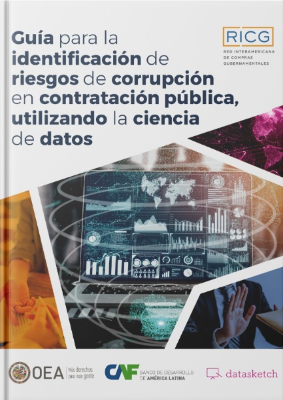
(Guía para la identificación de riesgos de corrupción en contratación pública, utilizando la ciencia de datos - Datasketch - Via RICG)
#SOCIAL-FABRIC
Tourism and local development
Fairbnb.coop is a collaborative platform that promotes sustainable and equitable tourism, allowing guests and hosts to connect in a meaningful way through cultural exchange.
Its purpose is to offer short-term rentals at affordable prices. It has a fair business model: the host earns in proportion to what the guest pays, and 50% of the commission received by the platform is invested in projects that benefit the local communities.
This platform has a strong strategy around democratic governance, transparency and social sustainability. It seeks to be an alternative to the extractive practices of other tourism platforms. Its mission is based on the Sustainable Development Goals and the Safe Travels protocols of the World Travel and Tourism Council.

(Fairbnb platform logo via Fairbnb.coop)
#DECISION-MAKING
Representative deliberative processes and how to evaluate them
The OECD developed these guidelines to encourage public authorities, officials and organizers to evaluate such processes more objectively and comprehensively.
The guidelines establish minimum criteria for evaluating representative deliberative processes and propose a basis for more comprehensive evaluations, with additional measures for specific contexts and needs in each country.
The guide responds to the findings of the 2020 report Innovative Citizen Participation and New Democratic Institutions: Catching the Deliberative Wave. There, it was noted that authorities at all levels of government are increasingly using citizens' assemblies and other deliberative processes to address complex public policy problems. Thus, there is also a need to increase their evaluation and possible improvement.
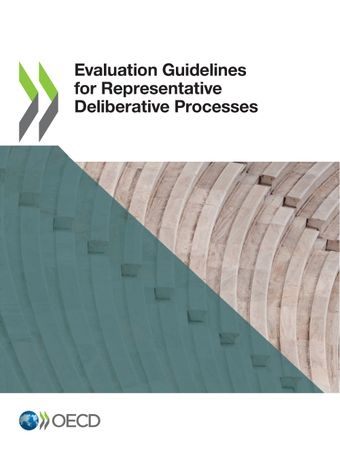
Assessing the Role of Collaboration on Latin American Responses to the COVID-19 Crisis
Jennifer Cyr, Matías Bianchi, Lucas González and Antonella Perini argue that more collaborative national governments have successfully responded to COVID-19.
Using a database, they studied collaborative governance and conducted statistical tests. They also developed three case studies to see how collaboration looked in practice.
The result of the research was published in the Journal of Politics in Latin America.
Among its findings are that the collaboration helped boost cooperation over resources, buy time to prepare for potential case growth, and produce a unified message to avoid viral spread.
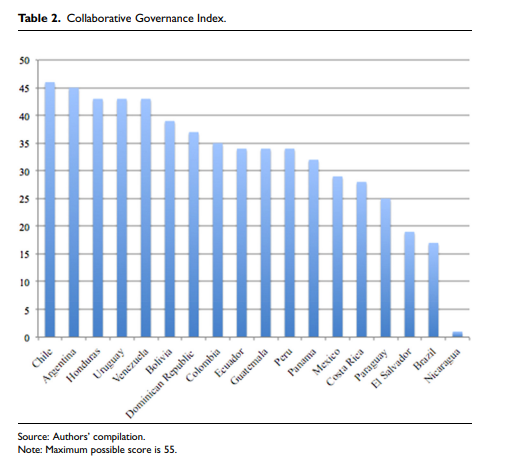
(Table Collaborative Governance Index published in Journal of Politics in Latin America)
#GRANT
2022 Health Data Science Black Internship Programme
Health Data Research UK has opened its call for internships in its special program to include people of African descent in data science in the health sector during the summer of 2022.
The program’s goal is to address the underrepresentation of this population in the science, technology, engineering and mathematics (STEM) sector.
In addition, it seeks to be the first approach for data scientists to start their working life. The internship lasts two months and will allow them to learn about health data science in the field and develop their research projects.
The deadline to apply is January 21, 2022.
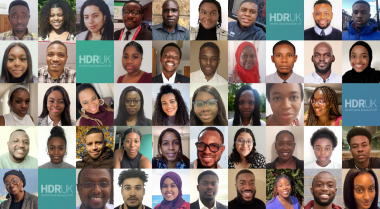
(Previous participants of the Health Data Science Black Internship Programme)
#COURSE
This course in Ethics and Governance in the Media explores the basic theories, models, and terms that address ethics in the media context. It provides an introductory explanation of ethical theories, social needs regarding the use of the media. Those who complete this course will be able to discuss and decide on ethical dilemmas in media contexts.
The course, built by the University of Amsterdam through the Coursera platform, is taught by Rutger de Graaf, Damian Trilling, Lotte Salome, Sandra Jacobs, Annemarie van Oosten.
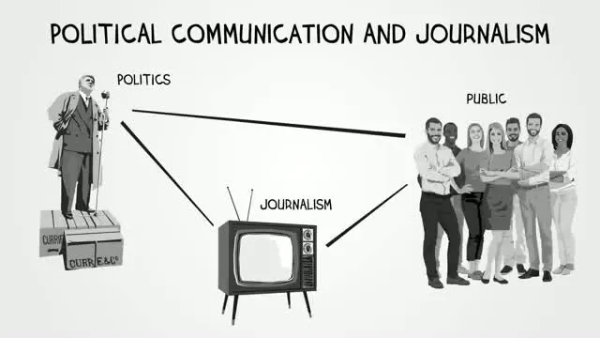
(Political Communication and Journalism Slide vía University of Amsterdam at Coursera)
That's all for now!
If you have reached us through social networks or have been forwarded this newsletter and want to receive it in your email twice a month, please subscribe!
We have other newsletters that may interest you in Data Journalism and Data Culture.




